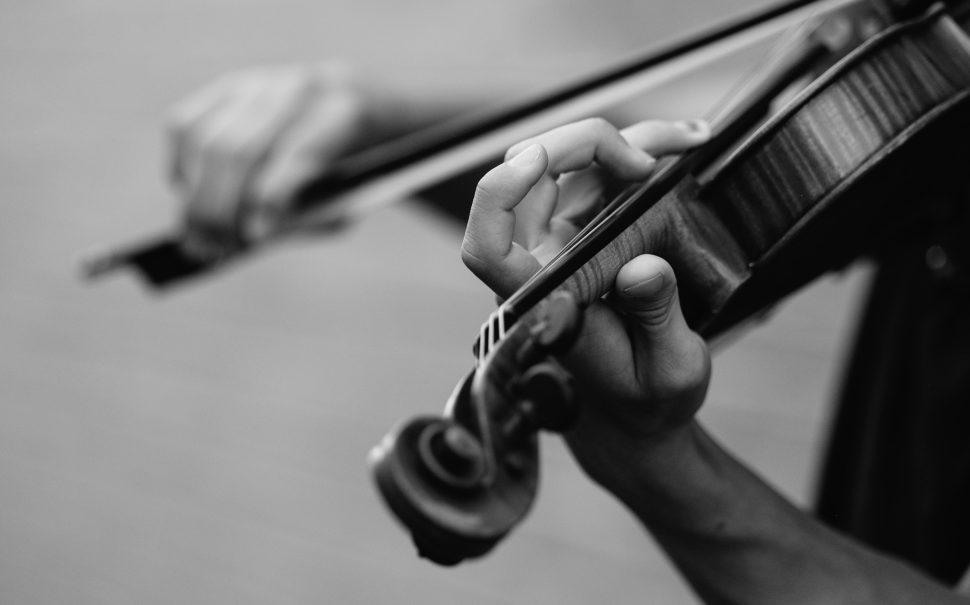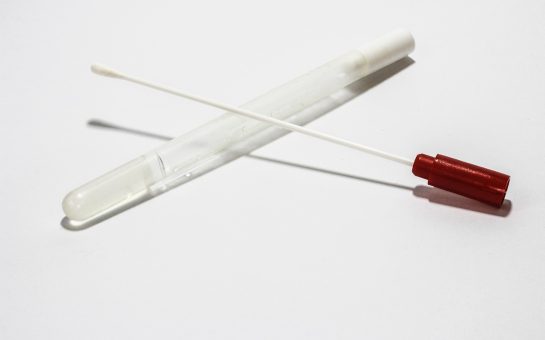Ten years on since historic child sexual abuse allegations were made towards staff at Chetham’s School of Music, justice seems nebulous.
One of the survivors of abuse at Chetham’s – who wishes to remain anonymous – spoke to Mancunian Matters.
She went to Chetham’s aged 13, and they swapped her to violin teacher Christopher Ling because he had a reputation for making people work hard.
He found out she had been bullied at previous schools, so he told her he would protect her and sort it out, which she said she was thrilled by.
Because she had suffered years of bullying, and no one had ever rescued her, she soon started wanting his approval and working hard.
She said: “I fell under this psychological spell, and it wasn’t long after that the first episode of abuse happened. I was 14. I was so naïve as I didn’t know his aims were sexual, so I was confused and froze.”
The next morning, he came to tell her that she mustn’t tell anyone because if she did, he would have to go to prison, and it would be her fault.
By the time the abuse had finished, she was 15, and she carried on having lessons with him, and then he went abroad. She then spoke to the police and told them everything.
No one spoke to her about it at Chetham’s and she said they expecteded her to act normally, but they knew at least ten students had been abused.
She said: “The general gist was sweep it under the carpet, pretend it hadn’t happened.”
The police asked the CPS if they could extradite him, but then they were given the advice he couldn’t. There was not enough evidence, and the case was dropped, but it turned out he should have been extradited later.
In 2013, the Christopher Ling case reopened, and in 2015 the American Marshalls went to his house, but he shot himself before he was extradited, so it didn’t go to court. She testified at an Independent Inquiry into Child Sexual Abuse (IICSA) which started in 2019.
What does she think about Chetham’s response to the abuse allegations?
“Pretty self-serving,” she said. “Although they have changed for the better, I am not convinced that they completely get it.
“They’re not on it. They’re always on the back foot. People go, ‘Oh my god, what a monster’, but they don’t look at their own culture, which allowed them to flourish.”
Richard Scorer, Head of Abuse Law at Slater and Gordon Lawyers, who represented some of the victims in court, said the criminal justice process has not always delivered for victims. However, they have settled a number of civil cases with Chetham’s.
He recognises the limitations of these settlements.
He said: “I hesitate to state Chet’s has accepted responsibility because settling a civil claim simply involves paying an amount of money in damages; you can do that without admitting liability or accepting responsibility or fault.”
In 2013, Michael Brewer – a former director of music at the school – was jailed for six years for indecently assaulting a pupil, Frances Andrade. Miss Andrade committed suicide a week after testifying against him.
This case triggered an influx of allegations of child sexual abuse made towards teachers at Chetham’s School of Music, dating back to the 1970s, 1980s and 1990s.
Greater Manchester Police launched Operation Kiso, which at one point was investigating 39 current and former teachers at Chetham’s and the Royal Northern College of Music.
Ian Pace, Professor of Music at City, University of London, was a pupil at Chetham’s from 1978 to 1986 and is a leading researcher and campaigner. He gave extensive written and verbal testimony to the IICSA hearings, although he was not a victim of sexual abuse while at the school.
He said following the Brewer case and Francis Andrade’s suicide, this was finally the moment people felt they could speak out.
He said: “On the day of the verdict, my blog with the petition for a public inquiry went live, and for the next few weeks, I was inundated with correspondence with people telling me their own stories.
“It was the equivalent of the Me-Too movement for music education.”
Professor Pace said in so many cases of institutional abuse, institutions privilege their own reputation. He said this was not just about not wanting to scare away parents and children but also because they become more liable for civil suits when they admit to something.
He said: “This is why we needed IICSA. After IICSA came out with a damning report, certain things they could never openly admit happened, they could no longer deny, opening the ground for civil suits.
“IICSA was very much a turning point, and it meant a lot to the people involved.
“Very often abuse victims have internalised it was their own fault, that they did something to deserve it. When a public inquiry declares the school was at fault, that takes a huge amount off their back.”
The report from the hearings, which was released last year, said: “On occasion when allegations of child sexual abuse arose, headteachers moved to protect the reputation of the school rather than the welfare of victims and other children at the school.”
Despite the report, there is still a feeling that justice hasn’t been done; maybe it never can be.
The anonymous survivor who was sexually abused by Christopher Ling said: “I didn’t believe in justice. Look at Michael Brewer, who got six years, did three years, and now he’s out and about, and he’s fine.
“That’s not justice.
“Chris Ling would have had a harsher sentence because there were so many victims. In a way, I was relieved when Ling died; at least he’s not on this earth. There’s partial justice in that. The inquiry brought some justice. But I am not sure if justice is possible.”
She said she was pleased the headteacher at the time attended the inquiry and listened to the survivors – she believes Chetham’s would not have apologised had it not been for the inquiry.
Professor Pace said he is prepared to believe the new leadership of the school is acting in good faith and genuinely wants to prevent a reoccurrence of this:
He said: “All of the destroyed lives that came out of that school is every bit as part of its legacy, its reputation and its responsibility as those who have gone on to pursue successful music careers.
“I certainly do not think that it would be accurate to say that all victims feel that they got justice.”
Mr Scorer said in terms of change in safeguarding; it’s difficult to ascertain how deep the changes are.
He said: “Safeguarding in a formal sense has definitely improved. But culture change takes a long time.
“It was basically the attitude if you suffered physical, emotional or sexual abuse along the way, that’s just tough; if you want to do well in the music industry, you’ve got to be tough about it.
“That was very much the culture when my clients were there, the attitude was you just have to put up with this stuff because this is how the industry is.
“It’s always hard to know how much this has changed because that was such a culturally deep-rooted view at Chet’s amongst some of the staff when this abuse was going on. I’m not sure how easily you can eradicate this deep-rooted view.
“I’m not making any accusations against current staff members, but as a general point, cultural change takes a long time.
“I don’t doubt there will have been improvements, but the question mark is how much improvement you can expect in less than a generation. One has to be quite cautious about assuming a lot will have changed. It’s hard to change culture overnight.”
In a statement following the IICSA hearings, Chetham’s said they would welcome all 20 recommendations in the report. They apologised for the way former teachers at the school betrayed and manipulated the trust of their students. They also apologised for failing to safeguard young people at the school.
They said: “Serious errors of judgement were made, and young people were not listened to in the way that they should have been. When reports of abuse did come to light, we did not offer appropriate support.”
Despite this contrition, the effects of the abuse on the survivors continue to ripple out to this day.
The anonymous survivor added: “Victims respond in different ways. Some become alcoholics, some close it off, and others take my route, which is to be in therapy forever.
“It doesn’t go away. It’s sticky forever. I’ve improved a lot since I was 14, but it still affects how I interact with the world.”
For free, confidential support, call NAPAC’s (National Association for People Abused in Childhood) support line at 0808 801 0331 or email them at [email protected].
Alternatively contact the Samaritans on 116 123 or visit https://www.samaritans.org/ for more information.
Photo by Joel Wyncott on Unsplash





Join the discussion
Excellent summary of a shameful period that damaged so many young musicians. I’m proud of Chetham’s – it’s grammar school with music phase and how it has changed today. Nothing should be brushed under carpet….